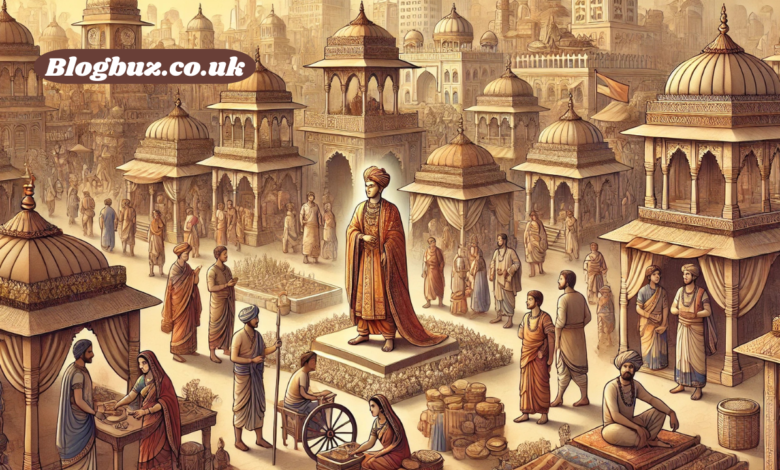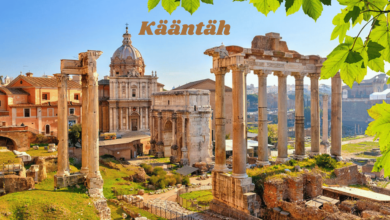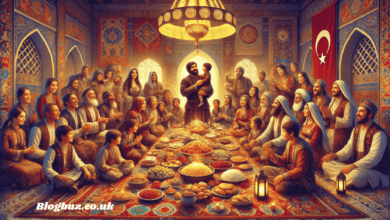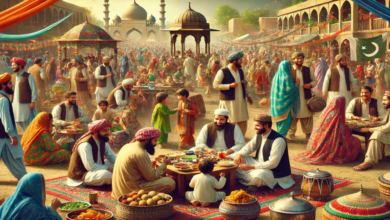Agrawau: Heritage, Cultural Significance, and Modern Impact of the Agrawal Community

The term Agrawau represents much more than a name; it encompasses a unique blend of heritage, cultural significance, and historical contributions of the Agrawal community. Originating from the ancient city of Agroha, Agrawau holds a deep cultural resonance, particularly within India, and serves as a testament to the Agrawal community’s enduring principles of entrepreneurship, ethical trade, and social welfare.
The Historical Roots of Agrawau
The origins of Agrawau are deeply rooted in the ancient city of Agroha, established by the legendary King Agrasen. According to historical accounts, King Agrasen founded Agroha based on equality, justice, and non-violence ideals. He envisioned a society prioritizing economic self-sufficiency, compassion, and community welfare. His reign led to Agroha flourishing as a centre for trade and commerce, drawing merchants from across regions. The Agrawal community, named after Agroha, has since upheld these values, building a legacy around ethical business practices and community support.
Agrawau, as a symbol of heritage, signifies not only the historical roots of the Agrawals but also embodies values passed down through generations. The community remains deeply connected to King Agrasen’s teachings, with values of fairness, charity, and community well-being playing a central role in Agrawal practices and their contributions to society.
The Cultural and Social Identity of Agrawau
For the Agrawal community, Agrawau represents a cultural identity, embodying the principles of integrity, diligence, and philanthropy. The Agrawals have preserved these values for centuries, transforming them into a foundation for social responsibility and community welfare. This commitment is reflected in the Agrawal community’s involvement in various charitable efforts, from establishing educational institutions to funding healthcare facilities. Their commitment to charity echoes the teachings of King Agrasen, who emphasized community welfare and the importance of giving back.
Each year, Agrawals celebrate Agrasen Jayanti to honour their heritage. During this festival, they remember and celebrate King Agrasen’s teachings. The festival is a time for community members to reflect on their historical roots, renew their commitment to ethical business practices, and strengthen community bonds.
Economic Contributions and Business Acumen
Historically, the Agrawals have been prominent in trade and commerce, establishing trade routes across India and trading in commodities like spices, textiles, and agricultural products. This background in business has shaped the Agrawals into one of India’s most influential business communities, with a strong presence in sectors such as finance, manufacturing, technology, and real estate.
Agrawau represents a legacy of adaptability and resilience in modern business. The Agrawals’ business acumen is marked by ethical practices and a commitment to quality, enabling them to maintain prominence in various industries. Today, many successful entrepreneurs and business leaders in India and abroad identify as Agrawals, contributing to the economy and upholding the values of Agrawau in their practices.
Philanthropy: A Core Value of Agrawau
A defining aspect of Agrawau is its emphasis on social welfare. The Agrawal community is renowned for its philanthropic contributions, which include funding educational institutions, supporting healthcare initiatives, and providing resources to underprivileged communities. These efforts are not just acts of charity but a reflection of the Agrawal philosophy, which sees wealth as a means to uplift society. The community’s commitment to charity aligns with King Agrasen’s values, which stressed fairness, charity, and the collective good.
Numerous Agrawal business people allocate significant portions of their earnings to social causes, particularly education and healthcare. This focus on social welfare highlights the community’s commitment to King Agrasen’s principles and underscores Agrawau’s role as a driver of positive societal impact.
Agrawau in the Face of Modern Challenges
Like many cultural communities, Agrawau faces the pressures of modern life, such as globalization, urbanization, and environmental challenges. These factors can sometimes lead to a disconnection from traditional values, especially among younger generations. However, the Agrawals have demonstrated resilience in preserving their heritage while adapting to the demands of a globalized economy. They continue to promote Agrawau values through cultural events, educational programs, and community initiatives to reinforce their roots.
One of the challenges Agrawau faces today is maintaining its identity amidst the widespread influence of modern technology and urban lifestyles. However, digital platforms provide new avenues for promoting and preserving Agrawal heritage, allowing community members to share their culture and traditions with a broader audience. Through technology, Agrawau has opportunities to engage younger generations, promoting a feeling of community pride and continuity.
Tourism and Cultural Exchange
Tourism also plays a role in sustaining Agrawau’s cultural legacy. By attracting visitors interested in Agrawal traditions, Agroha has become a destination for cultural tourism. The tourism sector provides economic benefits for the region and fosters cultural exchange, allowing visitors to gain insight into Agrawal customs and values. This exposure encourages the preservation of historical sites, traditional crafts, and festivals, thereby strengthening the Agrawal identity globally.
Cultural exchange through tourism also brings attention to the unique craftsmanship and products associated with Agrawau. Artisans in the Agrawal community are known for handmade textiles, jewellery, and other traditional crafts, which draw the interest of tourists and collectors alike. The growing demand for authentic cultural experiences has boosted the market for these crafts, allowing artisans to thrive while preserving their heritage.
The Future of Agrawau: Tradition Meets Modernity
Agrawau’s future lies in its ability to balance tradition with modernity. While Agrawal values remain a cornerstone of the community’s identity, there is a growing emphasis on integrating these values within contemporary frameworks. This includes leveraging digital tools for community engagement, promoting sustainable tourism, and using technology to preserve and share Agrawal history with the world.
The Agrawal community’s commitment to education, innovation, and ethical business practices ensures that Agrawau continues to evolve without losing sight of its roots. As Agrawals contribute to industries worldwide, they carry the principles of Agrawau—integrity, charity, and respect for heritage—demonstrating that tradition and progress can coexist harmoniously.
Conclusion
In essence, Agrawau is not only a cultural identity but a lasting legacy that celebrates heritage, community, and positive impact. From its origins in ancient Agroha to its modern presence across global industries, Agrawau embodies the Agrawal community’s commitment to ethical entrepreneurship, social responsibility, and cultural preservation. As the Agrawals continue to uphold the teachings of King Agrasen, Agrawau remains a beacon of tradition and innovation, inspiring future generations to honour their past while embracing the future.
You May Also Read: Celebrating a Eid ul Adha 2023 Kamyab Pakistani




